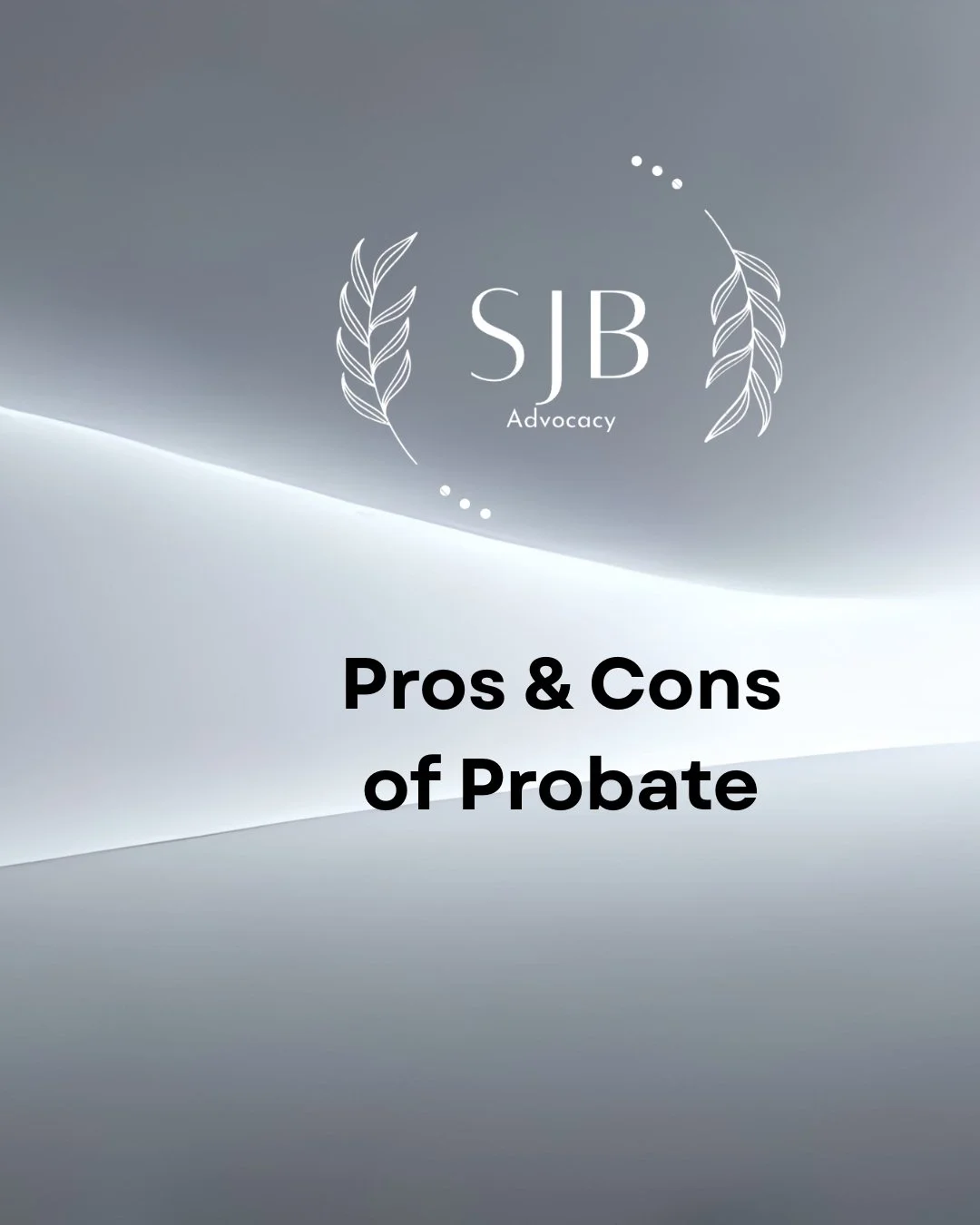Pros and Cons of Probate
What is Probate?
Probate refers to the court-supervised procedure for distributing a deceased individual’s assets following their death.
How Does Probate Work?
Regardless of whether a person has a last will and testament, any assets that don’t go directly to beneficiaries must undergo the probate process.
In essence, the process is straightforward:
The probate court appoints a representative to manage the estate.
This representative gathers and lists the deceased’s assets, settles any outstanding debts, bills, taxes, and fees, and then distributes the remaining assets to the designated beneficiaries in accordance with probate law.
Often, a probate attorney is hired to assist the representative, known as an executor or administrator, throughout this process.
The Downsides of Probate: Why Avoid It?
Even with a straightforward estate, probate can consume time and resources, delaying the distribution of assets to your loved ones and creating considerable stress during the potentially lengthy settlement process.
After a family member's passing, the last thing anyone wants is to endure prolonged meetings with attorneys and court hearings. Furthermore, this process is public, meaning that it unfolds in the open.
Additionally, the legal costs associated with probate can significantly reduce the value of the estate—by as much as 10%—ultimately depriving your loved ones of their inheritance.
The Upsides of Probate: What Are the Benefits?
In certain cases, the probate process can actually safeguard small estates, particularly for individuals who die intestate (without a will). In such instances, there’s a clear, step-by-step framework in place to ensure that the rightful beneficiaries inherit the decedent’s property, even if the process isn’t swift.
Moreover, if you currently lack the financial means for estate planning, allowing your estate to incur the costs of probate after your death might be the best option for your situation.
Another potential advantage of the probate process is that it makes estate distribution public. Wills are public records, meaning the details will be accessible once they’re executed posthumously.
Probate in Your State
Some states, like Florida, have established special probate processes designed for small estates. These procedures may be faster, less expensive, and more efficient than complex estate plans like living trusts. It’s worthwhile to investigate your state's probate process to see if you qualify for any special provisions.
Final Thoughts on Probate
As with any legal matter, what works for one individual may not be ideal for another. While the probate process may suit some estates, others might prefer to avoid it altogether.
Taking a little time now to plan could significantly benefit your loved ones in the future, so why not start exploring your Legacy planning options today?
If you would like assistance with probate or a probate-related issue, please fill out the form below and a Probate attorney from our office will contact you.

